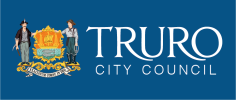
As parents, it's important to teach our children about the diversity of human experiences. One aspect of this diversity involves understanding the concept of gender identity. In today's article, we will delve into an important topic - understanding what it means to be transgender. This conversation needs to be conducted with sensitivity and respect, and at an age-appropriate level.
What Does "Transgender" Mean?
"Transgender" is a term used to describe a person whose gender identity does not match the sex they were assigned at birth. Let's break it down a bit more.
Imagine you're born and the doctors look at you and say, "It's a boy!" or "It's a girl!" This is your "assigned sex at birth." But as you grow up, you might feel that these labels don't fit you. You might feel, inside, that you are really a girl, even though everyone is telling you that you're a boy. Or vice versa. This internal feeling is your "gender identity."
People who are transgender feel a disconnect between their assigned sex at birth and their true gender identity. Some people might feel neither fully male nor fully female, or they might feel different from these terms altogether.
Why It's Important to Understand
Everyone's experiences and feelings are unique and deserve to be respected. When we understand what it means to be transgender, we're better equipped to respect and support people in our lives who might be transgender.
Understanding the concept of being transgender can help children grow into adults who are empathetic, open-minded, and supportive of all people, regardless of their gender identity. It promotes a more inclusive and accepting society.
Explaining Transgender Identity to Children
For young children, the conversation can be quite straightforward. Children are typically open to accepting new ideas, especially when explained in simple, relatable terms.
1. Start with Basics: Explain that when a baby is born, a doctor usually says it's a boy or a girl. But as some people grow, they might not feel like a boy or a girl, or they might feel like the opposite of what the doctor said.
2. Make It Relatable: Use simple examples or stories to illustrate this concept. You could say, "You know how you love chocolate ice cream, but some people don't, and they prefer strawberry? It's similar to how some people don't feel like the gender they were told they were when they were babies."
3. Promote Empathy: Teach them the importance of treating everyone kindly, even if they're different from us. Reinforce the idea that everyone has feelings and deserves respect.
4. Introduce Vocabulary: Teach them terms like "transgender" and "gender identity" in a simple and age-appropriate manner.
As children get older, these conversations can become more nuanced. Make sure to address any misconceptions and provide a safe space for questions and open discussion.
It's also a good idea to expose your children to diverse books, movies, and media that showcase a variety of experiences, including those of transgender individuals. This can help your children see and understand the world from different perspectives.
Final Thoughts
Remember, these conversations should be ongoing and evolve as your child matures and has more questions. The goal is not just to educate them about what it means to be transgender, but also to instill in them the values of empathy, respect, and acceptance of others' identities.
By taking the time to educate our children, we can help create a future where everyone, no matter their gender identity, feels accepted and valued. This conversation, while not always easy, is incredibly important. It is through understanding and acceptance that we build a kinder and more inclusive world.
Please help us deliver essential support services for LGBTQ+ communities in Cornwall
We rely on donations, partner organisations and fundraising at Pride events to operate our support services. Thank you.
Cornwall Pride is a registered charity. 1191003




